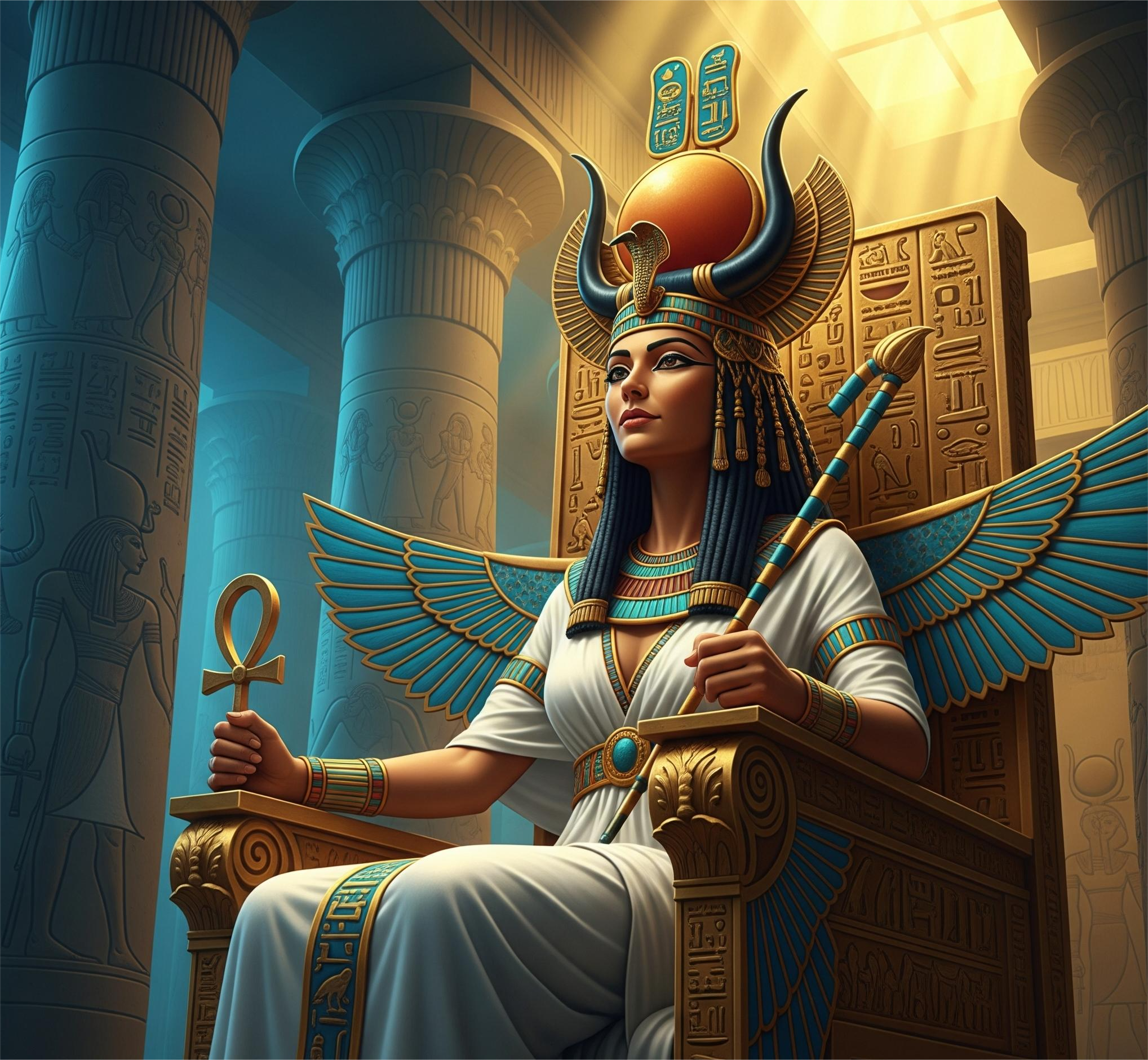In the vast pantheon of ancient Egyptian deities, Isis stands out as one of the most enduring and beloved. Originally a local goddess, Isis rose to prominence during the Old Kingdom and ultimately became a powerful figure throughout the Mediterranean world. As a mother, healer, magician, and protector, her influence stretched beyond the borders of Egypt into the Greco-Roman world and even resonates in modern spirituality today.
Isis in Egyptian Mythology
Isis was the sister and wife of Osiris, and the mother of Horus, forming part of the sacred Ennead of Heliopolis. She is best known for her role in the myth of Osiris, in which she gathers the dismembered pieces of her murdered husband and restores him to life long enough to conceive their son, Horus. This act of resurrection, devotion, and motherhood became central to her identity.
Isis was revered as the ultimate mother figure, a symbol of fertility and protection. She was also a powerful sorceress, said to have tricked the sun god Ra into revealing his secret name, granting her immense magical power. Her worship included rituals for healing, protection against evil, and guidance for the dead.
Spread of the Cult of Isis
During the Hellenistic period, Isis's cult spread throughout the Mediterranean, particularly after the conquests of Alexander the Great. Greek interpretations fused Isis with local goddesses such as Demeter and Aphrodite. Temples dedicated to her were established in cities like Athens, Pompeii, and Rome.
In the Roman Empire, Isis was worshipped by a wide demographic, including women, slaves, and the lower classes. The Roman cult of Isis emphasized personal salvation, eternal life, and emotional devotion, aspects that would later be echoed in Christianity. Her temple rituals, involving music, processions, and initiation rites, offered a deeply personal religious experience.
Isis’s Legacy Today
Though her temples fell with the rise of Christianity, Isis's image endured. Her iconography—often shown with the infant Horus—parallels Christian depictions of the Virgin Mary. In modern spirituality, especially within New Age and feminist circles, Isis is celebrated as a symbol of divine femininity, strength, and compassion.
Her legacy is a testament to the enduring power of myth and the universal resonance of a nurturing, powerful maternal figure.







